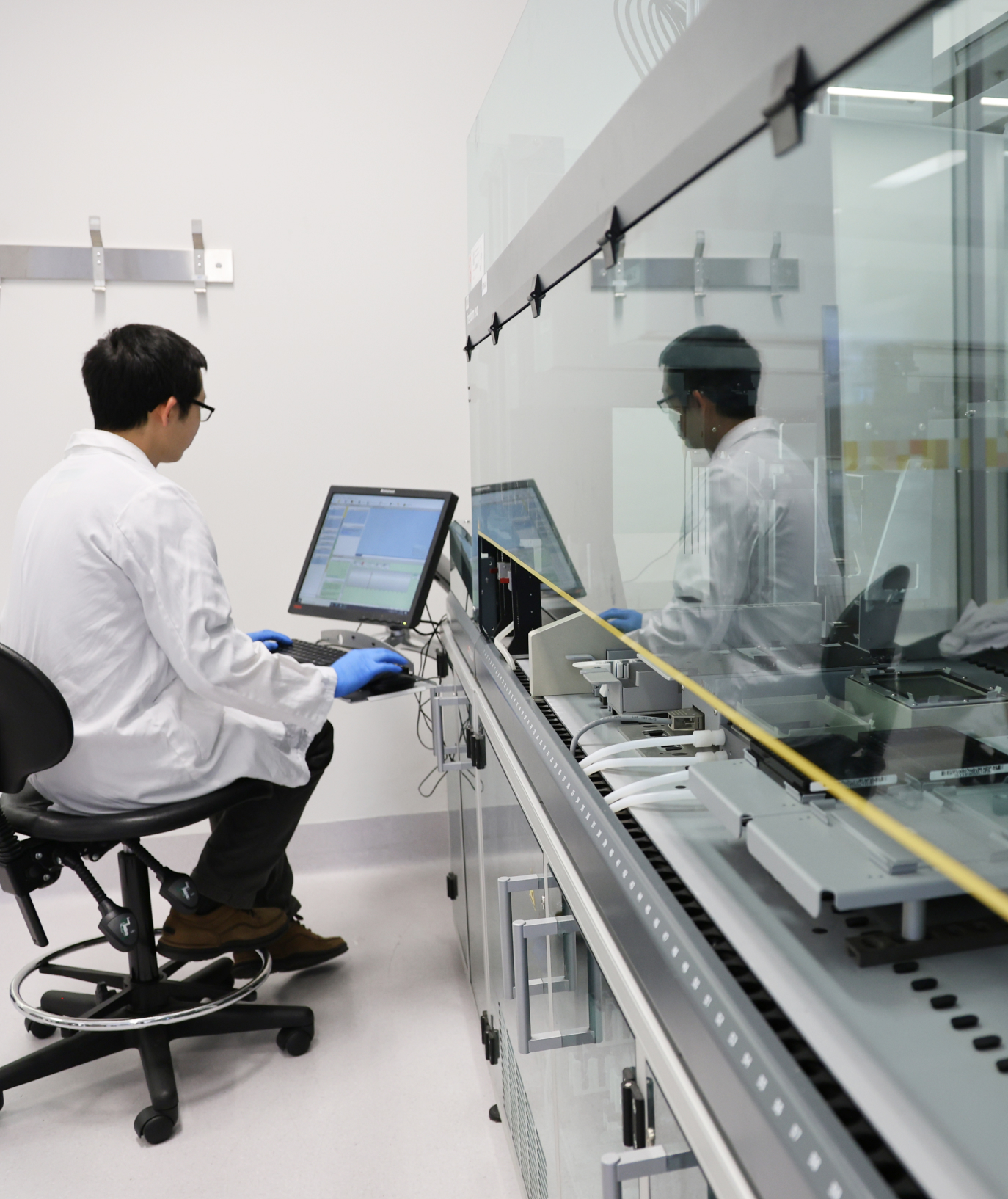Unlocking the Power of RNA Medicines


SERVICES
RNAte directly addresses the need to test new RNA and mRNA products for immunoreactivity in human cell.
The platform places a high priority on human induced pluripotent stem cell (iPSC) models for sensitive and accurate detection of immune responses. The use of iPSC offers a consistent and flexible platform for testing healthy human cells for innate immune reactions in a range of cell types. iPSC models mitigate risk associated with drug candidates and have the potential to accelerate the development pathway for novel RNA and mRNA products.
Leveraging robotic automation in testing services enables high throughput applications for library screening or testing of different conditions.
Immunomodulatory Compound Screening
- Screening for innate immune activation across all RNA sensors
- Detection of innate immune responses to lipids, adjuvants, other diluents, or contaminants
- Definition of specific signalling pathway activation using knock-out cell lines
- Human iPSC-derived specific cell types (i.e. Macrophages) for high sensitivity and biological relevance
Screening Specifications

Screening Services
This service menu outlines a two-tiered testing approach, utilising human macrophage cell lines for standard testing and iPSC technology for advanced evaluations, ensuring a thorough examination of immune reactivity, inflammation, and overall product response profile. The service can be directed to the testing of agonistic activities as well as tailored antagonistic effects.
- Pre-screening for RNA integrity and product purity.
- Endotoxin contamination screening.
- Dose response analyses on a panel of pattern recognition receptors (PRRs) in wild-type human macrophage cell line.
- Pre-screening for RNA integrity and product purity
- Endotoxin contamination screening
- Dose response analyses on extended panel of PRRs in human macrophages derived from iPSC. Other cell types in development

Assay Complexity and Sensitivity
Clinical Trials Support
Patient samples can be tested for:
- Pro-inflammatory cytokine release
- Gene expression by RT-qPCR or next-generation sequencing
Additional assays available
- Gene expression analyses: RT-qPCR or next-generation sequencing
- Extended dose responses
- Determination of RNA sensing pathways engaged using gene specific knockout cell lines
- Tailored antagonist assays
- High throughput screening
These assays are designed to inform on a binary outcome: the compounds have or do not have immunomodulatory activities (Sensitivity is moderate)
- Pre-screening for RNA integrity and product purity (endotoxin)
- Standard Compound Screening: Up to three doses tested on a panel of pattern recognition receptors (PRRs). Wild type human THP-1 cells are employed to identify agonists of Toll-like receptors – TLR 4, 7 and 8 as well as RNA-sensors, RIG-I and MDA5
- Screening can be designed to assay antagonistic activities on TLR 4, 7, 8 and RIG-I sensing
- Option to extend range of dose responses
- Option to detect specific gene expression via RT-qPCR (up to five genes)
- Option to perform next-generation sequencing for analysis of global gene expression
- Option to characterize innate immune pathways engaged using knockout cell lines
- Capacity to perform high throughput screening
These assays are designed to determine the immunomodulatory activities of compounds across a range of PRRs and inflammatory pathways, including RNA-sensing receptors (Sensitivity is high)
- Pre-screening for RNA integrity and product purity (endotoxin)
- Advanced immune reactivity profiling: Up to three doses tested on an extended panel of pattern recognition receptors (PRRs) in human macrophages derived from iPSC that closely mimic the characteristics of human tissue-resident macrophages. This provides the most sensitive model system to robustly measure PRR engagement
- Screening can be designed to assay antagonistic activities
- Option to extend range of dose responses
- Option to detect specific gene expression via RT-qPCR (up to five genes)
- Option to perform next-generation sequencing for analysis of global gene expression
- Option to characterize innate immune pathways engaged using knockout cell lines
- Capacity to perform high throughput screening
Publications
-
TLR7 gain-of-function genetic variation causes human lupus
Nature 2022; 605(7909): 349–356.
- Rational design of antisense oligonucleotides modulating the activity of TLR7/8 agonists
-
Activation of cytosolic RNA sensors by endogenous ligands: roles in disease pathogenesis
Front. Immunol. 2023; Vol. 14 Sec. Molecular Innate Immunity
-
The RNA sensor MDA5 detects SARS-CoV-2 infection
Scientific Reports 2021; 11, 13638

Interested in collaborating?
Discover how we can assist you in achieving optimal outcomes for your studies and understand why we stand out as leaders in our field.
